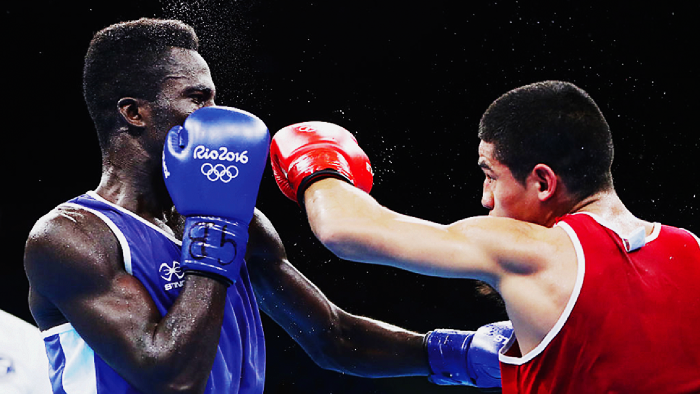
Lets’s arrest the dwindling fortunes of amateur boxing
Amateur boxing in Ghana dates back to the early 1900s, while bare knuckle fist fights was very popular mainly in Accra. Ghana has had a long standing boxing tradition, birthed from a chronology of colonial events, and strong indigenous characters, who had an unshakable support for the “sweet science”.
Advertisement
Today, boxing is the most popular sport in Ghana after football. The future of boxing in Ghana is deeply rooted in amateur boxing, which is on a speedy decline. Amateur boxing provides avenue for numerous young men and women, especially in coastal Accra where there is high incidence of poverty and crime. Its decline, therefore, can be viewed as disaster; it provided a great platform for young men and women, who hitherto could have been engaged in vices such as robbery, prostitution and drugs, among others.
This decline is not synonymous with only Ghana. Many countries with rich boxing histories relate to this dwindling fortunes of boxing.
Mexico, for instance, can boast of the highest number of professional world boxing champions rate, yet in sharp contrast with success at the amateur ranks. A country which can boast of producing legends such as Julio Cesar Chavez, Salvador Sanchez, Ruben Olivares, Ricardo “Finito” Lopez, Juan Manuel Marquez Erik Morales, Mark Antonio Barrera. Current national boxing icon, Saul Canelo Alvarez, turned pro at 15.
This is in sharp contrast with the Ghana story, where all but David Kotei (D.K. Poison), the country’s first world champion, graduated from the amateur level.
What accounts for this varying phenomena of two prominent boxing tradition?
In Mexico, authorities claim poverty as a major reason. All the boxers listed above are from very poor homes hence the quest to earn huge purse to support family is very attractive.
The geographical location of Mexico, a mere border away from USA, home to the most powerful boxing promoters, is also a contributing factor to the low amateur boxer retention rate in Mexico. Obviously, the power of the dollar forces young men to abandon quest for Olympic glory for the paid ranks. For Mexico, it has not been all gloomy for them since these young men eventually get exposed to the best equipment and deals, so they still raise high the flag of the country.
The same cannot be said of Ghana. Recent successes of Raymond Narh and Duke Micah could not translate into capital enough to impact local amateurs. We keep declining in our fortunes, and this, if not checked, will come with dire consequences.
Wahid Omar, who lost in the just-ended Olympics in Rio, if not well managed, will never find his name in the folklore of Ghana boxing.
Amateur boxers need to know that there is much benefit in working up the amateur ladder before pursuing professional challenges. The quest for cash over national glory at a young age should be discouraged. The Ghana boxing federation should put an internationally acceptable standard measure of progress for every amateur boxer to achieve as a requirement for turning professional.
The governments should step up their game with good policies on sports, and boxing for that matter. A-state-of-the-art boxing gym at Korle Gonno will come in handy. Coaches and technical support for young boxers should be encouraged by way of coaching courses oversees to fraternise and upgrade on new trends in boxing.
A national boxing league should be reintroduced, a standing “Black Bombers” team always in place to partake in WABA-sanctioned competition.
Also a humble appeal to corporate Ghana to put in massive support to bring back the glory of Ghana boxing.



